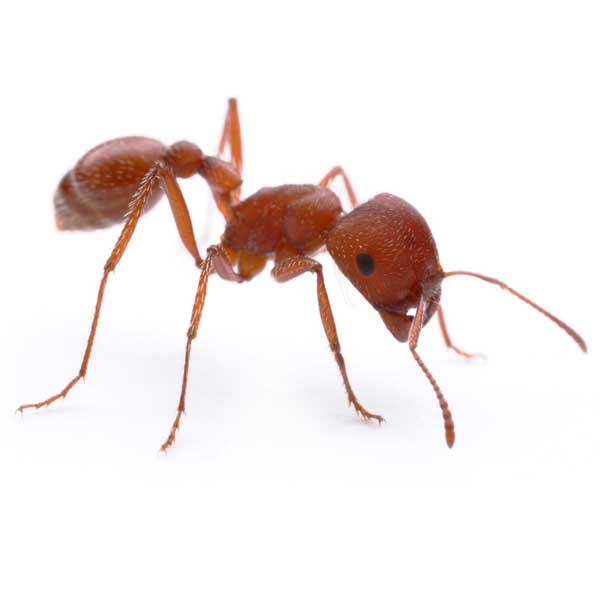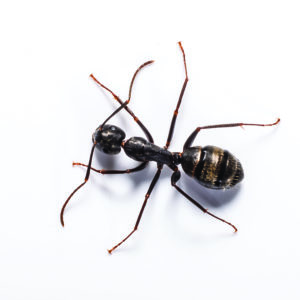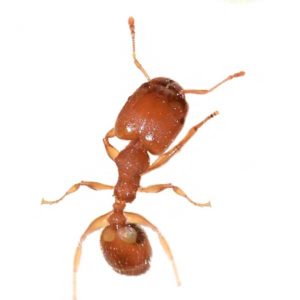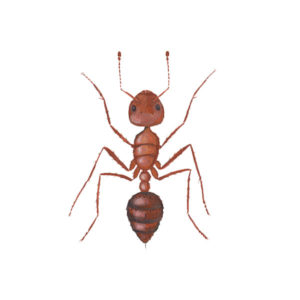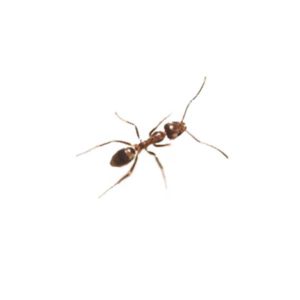Harvester Ants in Dallas
Harvester ants, also known as “red ants,” are famous for their seed collecting and painful stings. As their name implies, these ants harvest seeds. Grass seeds make up the majority of their diet. Easy to identify, harvester ants are large and build distinct mounds in open grasslands and deserts in the Dallas area. They use their strong jaws to grind seeds down and then place them in storage areas called ‘granaries‘ in their nests. Harvester ants deliver a painful sting and can damage lawns and vegetation as they forage for food.
Harvester Ant Habitat
Nests of harvester ants are typically located in exposed sandy soil, with nests having as many as 10 entrances. The mound-shaped nests are moderate to large in size and can be found in arid grasslands, lawns, and playgrounds. They create large circular nest clearings, stripping vegetation and contributing to soil erosion. While they prefer the outdoors and do not typically invade homes and buildings, harvester ants do establish nests in lawns and gardens close to homes, often destroying vegetation. Harvester ants swarm to reproduce, and swarming typically takes place between June and October, especially in the afternoon after a rain event.
Harvester Ant Behaviors, Threats or Dangers
Although they do not invade homes, harvester ants are occasional pests on lawns and playgrounds, where people may get stung by them. Harvester ants are famous for their sting. Unlike most ants, harvester ants leave their stinger in the wound. According to experts, harvester ants will readily attack humans and smaller animals. Anaphylactic reactions have been reported from harvester ant stings. If you suspect a harvester ant infestation, it is recommended to contact a licensed ant exterminator.
Need help with Harvester Ant control?
We'll call you! Leave your information below.

